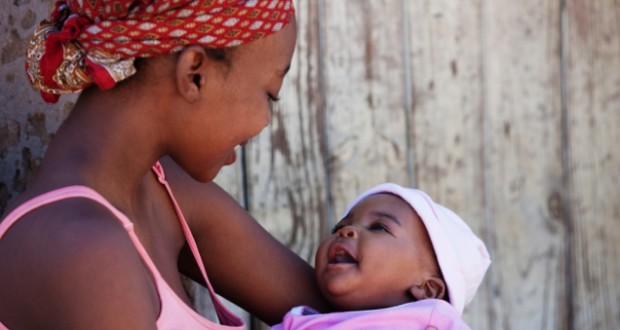Does parenting style influence a child significantly? What’s the “Nigerian parenting” style and how does it affect children, especially their academic work?
A Brief Introduction to Parenting Style
Parenting style can be described as all strategies (behaviours, attitudes and values) parents use to interact with their children and influence their physical, emotional, social and intellectual development.
Theories concerning parenting style are not simply about the individual behaviour of parents but refer to a pattern of bi-directional relationships between parents and child.
The driving force behind parenting style research has been the physical and psychosocial well-being of children and families.
There has been a drive towards identifying negative and positive parenting attitudes and practices, as well as how they can be manipulated to achieve a better physical and psychosocial outcome.
Parenting style is important because several reports indicate that it predicts how children perform in the domains of social competence, psychosocial development, academic performance and problem behaviour.
Parental responsiveness is reported to predict social competence and psychosocial functioning, while parental “demandingness” is associated with instrumental competence (academic performance and problem behaviour).
This approach led to the identification of a fourth parenting style, i.e. uninvolved or neglectful styles of parenting. This integrated typology of four parenting styles still forms the theoretical underpinning of much research on parenting styles, and its correlates and outcome.
These four styles may be described as follows: authoritative parents are high on both demanding and responsiveness measures; authoritarian parents are high on demanding but low on responsiveness measures; indulgent parents are high on responsiveness and low on demanding measures; and uninvolved parents are low on both demanding and responsiveness measures — M F Tunde-Ayinmode and others
 The Nigerian Parent Styles
The Nigerian Parent Styles
Here is what Lagos Mums, a popular site on parenting and mother related topics, has to say about the Nigerian parenting style:
“The true Nigerian parenting style includes tough love, discipline, instilling a sense of responsibility, diligence at home chores (maybe directed at the female child), a big premium placed on respect and culture.
We have all heard of the stories of the aunty or neighbour who would smack a child for misbehaviour and when the parent was informed, the parent would also be sure to add their own ‘beating’ for good measure.
The Nigerian parenting style has evolved and nowadays the parenting style today seems more lenient…everything has changed and even the educational style has changed.
Children are no longer expected to go the rote style of learning/instructions, or only expected to speak when spoken to and the disappearance of (copal) corporal punishment – back in our days being flogged at school was expected, being taunted by teachers if you were too ‘slow’ was normal and being disciplined in front of your class was normal.
If you didn’t want these to happen to you, you simply ensured you behaved yourself. Today all these methods of discipline are seen as humiliating and degrading.
I have been advised by my child’s teacher to tell my child ‘how very, very sad I am and show displeasure on my face when I want to correct a wrong behaviour’ because spanking is not advisable.
The Nigerian parent today is generally more ‘friendly’ than in the old school days. There are more conversations between parents and children today, partly because the average child today also demands it.
The typical child today cannot imagine being told ‘No’ without having things explained to him or her.
They are born wired differently today. How many of us have heard grandma’s remark at how quickly babies today open their eyes? Or how quickly a toddler today knows his or her colours compared to our days, including the secondary colours such as indigo and turquoise.”
Problem Solving
On the problem-solving theme of parenting styles, Weiss & Schwarz (1996), explained that failure to acquire and use problems solving strategies may facilitate the fall in the academic performance of students from such a background.
Difficulties with problem-solving may be caused by:
- ineffective parenting caused by stress associated with conflict;
- inappropriate modes of problem-solving passed on from parents;
- stress and problems at home carried over to the school environment, and problem-solving in homes that are characterized by conflict, blaming, and non-acceptance of responsibility are associated with poor academic performance of some students.
These interactions generally correspond with the general classification of parenting styles as authoritarian, democratic and laissez-faire. In authoritarian parenting styles, children are exposed to a kind of master-servant relationship with their parents who are overly harsh and punitive. There is no freedom for children.
In a democratic parenting style, there is a kind of positive parenting where there is mutual interaction between parents and their children.
In the laissez-faire parenting style, we have a kind of indifferent or uninvolved parenting where the parents show nonchalant attitudes to the activities of their children both at home and the school.
Maccoby & Martin (1983) and Mandara (2006) provide a more comprehensive way of categorizing parenting according to whether they are high or low on parental demandingness and responsiveness.
They give a typology of four parenting styles: indulgent, authoritarian, authoritative, and uninvolved. Each of these parenting styles reflects different naturally occurring patterns of parental values, practices, and behaviours as observed by Baumrind (1991). – AbdulRaheem Yusuf and Co
Extension of proper parenting
Schools are expected to serve as an extension of quality parenting. Therefore, whatever the background or style of parenting your child had in the past, a good school will give your child the proper orientation he or she needs to do well.

